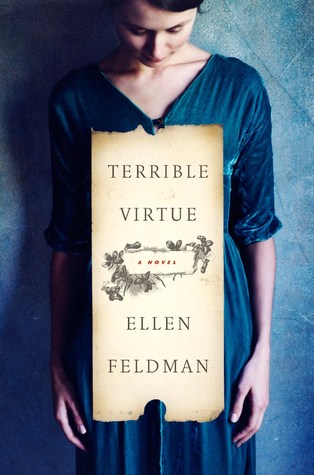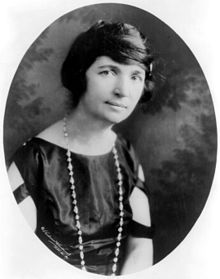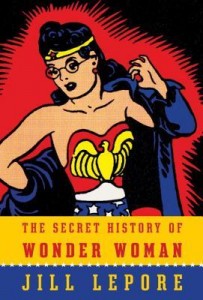 Terrible Virtue by Ellen Feldman
Terrible Virtue by Ellen Feldman Formats available: hardcover, ebook, audiobook
Pages: 272
Published by Harper on March 22nd 2016
Purchasing Info: Author's Website, Publisher's Website, Amazon, Barnes & Noble, Kobo, Bookshop.org
Goodreads
In the spirit of The Paris Wife and Loving Frank, the provocative and compelling story of one of the most fascinating and influential figures of the twentieth century: Margaret Sanger, the founder of Planned Parenthood—an indomitable woman who, more than any other, and at great personal cost, shaped the sexual landscape we inhabit today.
The daughter of a hard-drinking, smooth-tongued free thinker and a mother worn down by thirteen children, Margaret Sanger vowed her life would be different. Trained as a nurse, she fought for social justice beside labor organizers, anarchists, socialists, and other progressives, eventually channeling her energy to one singular cause: legalizing contraception. It was a battle that would pit her against puritanical, patriarchal lawmakers, send her to prison again and again, force her to flee to England, and ultimately change the lives of women across the country and around the world.
This complex enigmatic revolutionary was at once vain and charismatic, generous and ruthless, sexually impulsive and coolly calculating—a competitive, self-centered woman who championed all women, a conflicted mother who suffered the worst tragedy a parent can experience. From opening the first illegal birth control clinic in America in 1916 through the founding of Planned Parenthood to the arrival of the Pill in the 1960s, Margaret Sanger sacrificed two husbands, three children, and scores of lovers in her fight for sexual equality and freedom.
With cameos by such legendary figures as Emma Goldman, John Reed, Big Bill Haywood, H. G. Wells, and the love of Margaret’s life, Havelock Ellis, this richly imagined portrait of a larger-than-life woman is at once sympathetic to her suffering and unsparing of her faults. Deeply insightful, Terrible Virtue is Margaret Sanger’s story as she herself might have told it.
My Review:

When the phrase, “Well-behaved women seldom make history” was first penned by Laurel Thatcher Ulrich in 1976, Margaret Sanger had been dead for ten years. But that short, pithy phrase still sums up her life.
On the one hand, all women, at least in Western countries, owe Sanger a debt. Whether one believes that birth control is a blessing, a right, or even a pernicious evil, Sanger made that choice possible. More importantly, she challenged and eventually forced the overthrow of laws that didn’t just make birth control illegal, but made it illegal for women to be educated about the “facts of life” about their own bodies.
And those of us who have chosen the spacing and number of our children, or not to have children at all, can trace that ability, that choice, back to her crusade.
But crusaders and saints are generally terrible people to live with. In Sanger’s case, it seems as if her husbands, her lovers, and especially her own children suffered a great deal from her obsessive devotion to her cause. That we are the better for it doesn’t change the damage to them. But if she had chosen to be a traditional wife and mother, where would we be now?
Terrible Virtue is a fictionalized version of Sanger’s life, told primarily through her own eyes. And we are all unreliable narrators of our own lives, as Sanger is. Not that she deliberately lies, but certainly that she justifies her behavior in her own mind. As do we all.
The occasional insertions of brief comments from the point of view of those closest to her, those who most often found themselves sacrificed on the altar of her crusade, provide a much-needed leavening counterpoint. Sanger gave birth to a revolution, but everyone around her paid the price.
Sanger is charming, and vain, and frequently ruthless in the pursuit of her goals. She’s obsessed with her groundbreaking work, and neglectful of anyone and everyone in her life in pursuit of those goals. She’s a difficult person to sympathize with, and the reader frequently does not, but her life was endlessly fascinating. She pursued a revolution for all of her life, and did so with a keen intellect and an eye for who would best advance the cause that she strove for. She succeeded beyond her wildest dreams. And occasionally in the middle of her greatest nightmares.
And she built one of the cornerstones of women’s rights in the 20th and 21st centuries – not just the right but also the capability for women to decide when, if, or how many children they would have. She made it possible for middle-class and poor women to have the same choices that rich women have always had, to control the size of their families.
While she may have entered on this crusade to prevent women from suffering the fate of her own mother, 13 children and dead before her time, she gave the gift to us all.
Escape Rating B+: Sanger’s life is fascinating, but she is not a sympathetic narrator. She’s selfish, obsessed, and ignores anyone and anything that doesn’t further her cause. That neglect generally covered her children, her two husbands, and any and all of her lovers. But it is her own children that suffer most for her crusade to let every woman decide how many children to have.
She may have pretended to be a respectable middle-class woman, but she certainly used the privilege she created, and had affairs with many famous and influential men, including but certainly not limited to Havelock Ellis and H.G. Wells. But her life wasn’t ruled by her love affairs – whatever else was going on in her life, she worked on the cause tirelessly and relentlessly.
At the end of the story, readers may respect Sanger, but not like her. She would have been hell to live with. But revolution is never easy. Or bloodless.
Because the story is from Sanger’s point of view, and because she is both self-serving and self-centered, she glosses over the accusations that were later leveled at her work. From her own point of view, she was not really a eugenicist. She did not advocate genocide of any populations. Instead, her goal was always to allow poor women of any race or ethnicity to be able to have the same choice that rich women have always had – the ability to limit the number of children they had to what they desired and would be economically feasible. She believed that the accusations of genocide that were leveled at her were the result of deliberate attempts to discredit her work.
We can’t know today. But we can see the way that governments and legislatures are still trying to denigrate any attempts for poor women to control their own biology in the continued witch hunt that hounds Planned Parenthood, and in the ever increasing number of laws that restrict women’s choices and inject medically incorrect dogma into women’s pursuit of those choices.
This book is an eye opener. A fascinating woman, an amazing life, and an influence that changed the world. And seems to have been the inspiration for Wonder Woman into the bargain!


